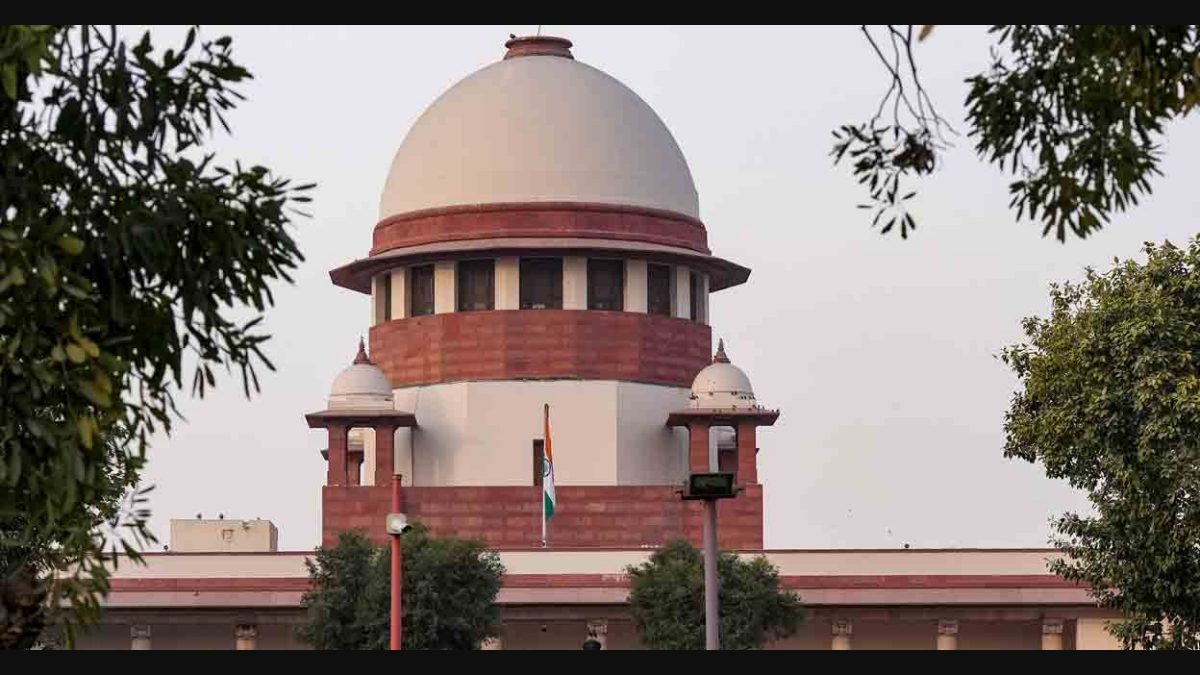The Supreme Court of India has recently dismissed a Public Interest Litigation (PIL) that sought the establishment of an Internal Security Council tasked with supervising national and state-level investigating agencies. While acknowledging the importance of ensuring accountability and transparency in law enforcement, the court held that the nature of the relief sought was a policy, and the same is not the domain of the judiciary but the legislature. Thus, the writ jurisdiction of the court could not be exercised.

Supreme Court Dismisses PIL Seeking Establishment of Internal Security Council for Oversight of Investigating Agencies
In a significant ruling, a bench of the Supreme Court comprising Chief Justice D Y Chandrachud, Justice J B Pardiwala and Justice Manoj Misra pronounced the dismissal of the PIL that advocated for the creation of an Internal Security Council. The PIL contended that the proposed council would enhance oversight and coordination among investigating agencies, ensuring their actions adhere to established legal norms and principles. It sought the Centre to set up a national-level agency to deal with crimes such as smuggling, large-scale political violence, narcotics insurgency, inter-state trafficking, etc., and the setting up of a National Internal Security Coordination Council under the control of a committee set up by the President and on the recommendation of the Chief Justice of India. Additionally, it sought that the council would not come under any legislative body or the government.
Court’s Rationale for Dismissal:
The Supreme Court, in its detailed judgment, elucidated that the PIL’s objectives were well-intentioned; however, the nature of the relief sought was a policy, and the same is not the domain of the judiciary but legislature. Moreover, a multiplicity of supervisory bodies could lead to confusion and hinder the efficiency of the investigating agencies. Besides, the judiciary and various statutory bodies already oversee law enforcement agencies, ensuring checks and balances.
Appreciation for Concerns and Reiteration of Existing Mechanisms:
While dismissing the PIL, the court acknowledged the petitioner’s apprehensions about potential abuse of power and lack of transparency within investigating agencies. The judgment underscored the importance of upholding the rule of law and safeguarding citizens’ rights. However, the court reiterated that the judiciary, in its capacity, continues to be vigilant in addressing any violations of due process and fundamental rights by investigating agencies.
Role of Judiciary and Statutory Commissions:
The Supreme Court highlighted plays a pivotal role by the judiciary in upholding the constitutional rights of citizens. It also referred to various statutory commissions, such as the National Human Rights Commission (NHRC), tasked with investigating complaints of human rights violations by law enforcement agencies. The court emphasized that these mechanisms serve as essential safeguards against abuse of power.
Balancing Accountability and Autonomy:
There is a balance between the need for accountability and the necessity of ensuring the autonomy of investigating agencies in carrying out their duties, and excessive interference could hamper the agencies’ ability to function effectively.
Conclusion:
The dismissal of the PIL seeking the establishment of an Internal Security Council underscores the Supreme Court’s faith in the existing legal and institutional mechanisms to ensure accountability and transparency within investigating agencies. While appreciating the petitioner’s concerns, the court has reaffirmed its commitment to upholding citizens’ rights and maintaining a delicate equilibrium between oversight and operational autonomy. As the nation’s highest judicial authority, the Supreme Court continues to play a pivotal role in safeguarding the rule of law and preserving the democratic fabric of India.











